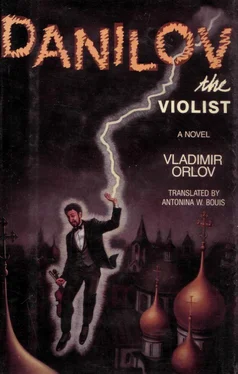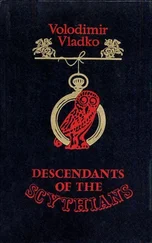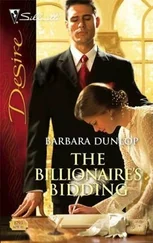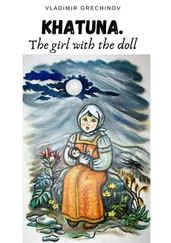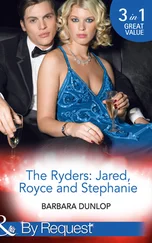"You're not in the least bit afraid of me, are you? You despise me? Why are you torturing me again?"
"What's he going on about?" thought Danilov. "I don't have any secret end-game tactic, I'm just giving up the bishop..."
"Don't beat me!" begged Valentin Sergeyevich. "Don't destroy me, sir! I won't be able to go back then! I'll get on my knees to you! Take pity on a poor orphan!"
Danilov felt sorry for Valentin Sergeyevich. He said: "Well, all right. I accept your proposal for a draw."
"Father mine! Benefactor!" Valentin Sergeyevich rushed over to kiss his hand, but Danilov grimaced fastidiously and stepped back.
Valentin Sergeyevich straightened up, flew into the center of the room, laughed in a terrifying concert-hall bass, aimed his platinum digit at Danilov's thin chest, and boomed so horribly that the sound broke the beer mugs in the neighborhood tavern on Korolev Street.
"Await your hour!"
He turned into something smoky and fiery that penetrated the wall with a crackle, and disappeared.
The house spirits rubbed their eyes for a while afterward, because as Valentin Sergeyevich's nature underwent the transformation from one physical state to another, it apparently had emitted tear gas.
"What appalling taste!" thought Danilov, looking at the singed wallpaper. "And why was he so terrified of the sacrificed bishop? ... Strange ... And yet his bass voice seemed familiar ..." He felt the shiny rectangle of the summons in his hand. The crimson marks were visible again. "Bad business, this," said Danilov with a sigh. In fact, it would have been hard to think of any worse...
4
Danilov gained altitude, undid his belt, and lit up a cigarette.
He smoked on rare occasions.
Below, obeying the rotation of the Earth, floated Ostankino, with its gray tower, which resembled a barbecue spit holding three pieces of shashlyk . Growing thinner with the effort, the tower stretched toward Danilov.
Danilov lay in the hammock of the air currents, his feet crossed and his arms behind his head. He did not want to think about anything at all now, but simply smoked with his eyes shut and waited for a heavy snow cloud to reach him from the northwest, from the leaden skies of Lapland.
It was warm in Moscow, boys were menacing their female classmates with sticky snowballs; the tramway wheels splashed murky water from steel gutters; cries of protest followed in the wake of obnoxious taxis that splattered people with mud. However, according to the calculations of the Temirtau weather station in Gornaya Shoriya, the warm air masses would soon collide with a cold one right over Moscow. They could not rule out the possibility of a winter thunderstorm. Danilov loved Ostankino so much because from time immemorial it had been the most storm-tossed part of Moscow, and even now it had a tower that held a special attraction for lightning. Danilov knew that today there would be an elemental fury over Ostankino. He almost pulled the Lapland cloud over to him in his impatience.
And then Danilov felt a kind of signal. It was weak, limp somehow. It carried neither a request nor a summons from unearthly powers. However, Danilov grew agitated. He looked down and determined that the signal was coming from a thirty-six-year-old man in a nutria hat. He was standing at the entrance to Ostankino Park near the doughnut stand. Danilov couldn't see the man well so he used his imagination to examine him and peer into his soul. It turned out that this man, who had just had a glass of coffee and a hot, crumbling doughnut, had come by streetcar from the hospital and was about to transfer to another streetcar. He had received an urgent call to the hospital that morning -- his father was on the brink of death. The only thing that might save him was an operation, and only if it were done immediately, and not an hour later. Semidelirious, the patient had refused the operation, and so the son signed the consent form. He felt that he was signing his father's death warrant.
He sat and waited for three hours. The operation was a success, but his father's condition was still critical. The man hadn't felt well before, but now that the tension was over, he had nervous chills and felt nauseated. He thought: "If I could only have a shot of vodka now!" Danilov sympathized.
Danilov looked at the cloud again and shook his head. It was barely crawling. He sighed and descended to the slippery asphalt. He didn't approach the man in the nutria hat right away. Danilov was always rather nervous about meeting new people. This man seemed intelligent and quiet, a geography teacher by profession, but it wasn't clear how he might react to Danilov's appearance.
"It's cold," Danilov said, smiling shyly.
"Yes, chilly," the man said with a nod.
Silence.
"Doesn't it seem to you," Danilov said, "that those new buildings on Argunovskaya are totally out of place both with the tower and certainly with the Sheremetyev Palace?"
The man looked at Danilov with surprise, looked at the houses, and said: "These aren't the worst buildings..."
"I'm not so sure," Danilov said and, after another silence, he started speaking quickly, stammering from embarrassment: "Please forgive me, I have a rather sordid request, you can tell me to go wherever you want, but at least hear me out...' I'm feeling very depressed... I need a drink ... and I can't drink alone. Would you keep me company?"
"What do you mean?" the man said with confusion.
"I have everything right here," Danilov said. And he took an already opened bottle of vodka and a glass from his coat pocket. "If you don't want to drink, at least stand with me..."
"Well, why not..." the man said uncertainly. "If you just want me to stand with you ..."
"Thanks a lot!" Danilov said cheerfully.
They went behind the brown fence of the former market and stood near the garbage pit. Danilov would have preferred a bottle of burgundy, or cognac, or the cunning green Chartreuse from the monastery cellars of Grenoble: He didn't want to drink vodka, especially so near a garbage pit, but what could he do! He drank his portion, refilled the glass, threw away the bottle, and offered the glass to the man.
"Please, take this... I can't drink any more ... but I hate it to go to waste!"
"No, no, no! I couldn't!" the man began, but he took the glass and knocked back the vodka.
Danilov offered him an apple to chase the vodka. Noticing how the man's eyes followed the glass, he said: "You didn't want more than a glass, did you?"
"What?" The man seemed startled and stared with fright at Danilov.
"No, no, I didn't mean anything," Danilov said quickly.
Here Danilov sensed that it was the perfect time for them to part. The man might be about to fall into a confessional mood. There wouldn't have been anything wrong with that, except that tomorrow the man would repent and rebuke himself for revealing his soul to the first stranger he met, after drinking vodka with him -- at least he didn't show him his papers and give him his telephone number. Danilov firmly excused himself and said he was late. He walked quickly in the direction of the park, went around the empty market building and flew up once more into the Ostankino sky. He relaxed his entire body, and lay back on the air currents to wait for the cloud.
Now he was calmer and even began whistling a tune from Bach's Well-Tempered Clavier. The cloud was already over Klin and Tchaikovsky's little house, and in another hour it would reach the gates of Moscow. Danilov couldn't wait any more. He didn't like enforced indolence, and the sweetness of the coming delights beckoned. He jumped up and flew out of the warm currents to meet the cloud. Above the Krukovo Railroad Station he pierced the dark, damp mass and pushing aside the fogs of its lower level, he rose to the cloud's very apex, to the glistening icy crystals. He stretched out and began turning into ice crystals himself, taking on their positive charge. Now he felt fine, he wasn't rushing the cloud, but he stubbornly crowded the warm front. The main event would occur in the sky over Ostankino.
Читать дальше
